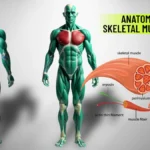You’re scrolling through Instagram in Dubai, sipping a camel milk latte, and you see a fitness influencer with abs sharper than a Burj Khalifa skyline. You think, “That’s it, I’m hitting the gym hard!” But before you dive headfirst into a crash diet or a grueling workout plan, let me share a cautionary tale from Korean actress Hwang Suk Jung. As a sports science graduate with over 14 years of personal training experience in Dubai, I’ve seen countless fitness fads come and go, but Hwang’s story is a powerful reminder that chasing the “perfect body” can backfire—big time.
Hwang Suk Jung at 54 years, stunned audiences at the 2020 YESKIN SPOFIT GRANDPRIX in South Korea, flaunting a physique that could make any Dubai Marina gym-goer jealous. She slashed her body fat to a jaw-dropping 2.1 kg (4.1%) in just six weeks, earning second place in the bikini novice category.
The Shocking Truth Behind Hwang Suk Jung’s Transformation
She slashed her body fat to a jaw-dropping 2.1 kg (4.1%) in just six weeks, earning second place in the bikini novice category. But the victory came at a cost. On Channel A’s Table for Four (June 30, 2025), she confessed,
“I used to look young, but after the competition, I aged 15 years. Don’t ever try this!”
Hwang Suk Jung
Her story went viral, trending on X and sparking debates about the risks of extreme fitness. As a Dubai personal trainer, I’ve seen clients chase similar quick fixes, only to end up exhausted, injured, or looking older than their years.So, what went wrong? Hwang’s drastic transformation involved intense workouts and a crash diet that pushed her body to unsustainable limits. While her dedication was admirable, the science shows that such extremes can wreak havoc on your health and appearance. Let’s dive into why and how you can avoid her pitfalls with a balanced meal plan and smart training strategies perfect for Dubai’s fast-paced lifestyle.
Why Extreme Fitness Can Age You Faster Than a Dubai Heatwave
Hwang’s story isn’t just a celebrity cautionary tale—it’s a science lesson. Extreme exercise and rapid weight loss can make you look older, and here’s why:
- Loss of Facial Volume: Dropping body fat to dangerously low levels (like Hwang’s 4.1%) strips subcutaneous fat from the face, leading to a gaunt, aged appearance. A 2021 study in Plastic and Reconstructive Surgeryfound that rapid fat loss reduces facial volume, accentuating wrinkles and sagging skin (Rohrich et al., 2021).
- Oxidative Stress: Intense workouts without proper recovery increase free radical production, which damages cells and accelerates aging. A 2019 study in Oxidative Medicine and Cellular Longevity showed that excessive exercise can elevate oxidative stress, leading to inflammation and skin damage (Pingitore et al., 2019).
- Collagen Breakdown: Crash diets deplete essential nutrients needed for collagen production, causing skin to lose elasticity. Research in The Journal of Clinical and Aesthetic Dermatology (2020) highlights that inadequate protein intake during weight loss harms skin health (Smith et al., 2020).
- Hormonal Imbalance: Extremely low body fat disrupts hormones like estrogen, which support skin and bone health. A 2022 study in Sports Medicine noted that low energy availability in athletes can lead to hormonal disruptions, accelerating aging signs (Mountjoy et al., 2022).

Hwang’s 4.1% body fat was far below the healthy range for women (17-24%), as recommended by the American College of Sports Medicine (ACSM, 2021). In Dubai’s fitness scene, where beach bodies are a year-round goal, it’s tempting to push for extreme results. But as Hwang learned, losing weight fast often means aging even faster.
Sustainable Fitness: Lessons from Dubai’s Fitness Scene
Dubai’s fitness culture is booming, from high-end gyms in DIFC to outdoor boot camps in Jumeirah Beach Residence. As one of the best personal trainers in Dubai, I’ve helped clients from Sheikh Zayed Road to Dubai Marina achieve their goals without sacrificing their health. Here’s how to avoid Hwang’s mistakes and build a sustainable diet plan for weight loss:

1. Prioritize a Balanced Meal Plan
Crash diets like Hwang’s strip away essential nutrients, leaving you tired and aged. Instead, opt for a healthy eating plan tailored to your needs. Use our macro calculator to determine your ideal protein, carb, and fat intake. A 2023 study in The American Journal of Clinical Nutrition found that balanced macronutrient diets support sustainable weight loss without compromising skin health (Sacks et al., 2023).
- Protein Power: Aim for 1.6-2.2g of protein per kg of body weight daily to preserve muscle and collagen (Morton et al., 2018).
- Healthy Fats: Include avocados, nuts, and olive oil to support skin elasticity, as supported by a 2020 study in Nutrients (Lin et al., 2020).
- Hydration in the Heat: Dubai’s climate demands extra hydration. Drink 3-4 liters daily to keep skin plump and energy high (Sawka et al., 2015).
Try Dubai’s healthy dining options like The Cycle Bistro in JLT or Nourish in Dubai Marina for sample meal planspacked with local, nutrient-rich ingredients.
2. Train Smart, Not Extreme
Hwang’s six-week transformation likely involved grueling workouts with little recovery. A 2017 study in Medicine & Science in Sports & Exercise showed that overtraining increases injury risk and fatigue, negating fitness gains (Kreher & Schwartz, 2017). Instead, follow these tips:
- Mix It Up: Combine strength, cardio, and flexibility training, as recommended by the ACSM (2021). Check out our 8-week beginner fat loss program for a balanced approach.
- Rest and Recover: Schedule rest days and prioritize sleep to reduce oxidative stress (Dattilo et al., 2011).
- Beat the Heat: In Dubai, train indoors during summer or join early morning classes at Kite Beach to avoid dehydration.
3. Set Realistic Goals
Hwang’s unrealistic goal of 4.1% body fat led to burnout. Use our VDOT calculator to set achievable fitness targets based on your current level. A 2024 study in Journal of Sports Sciences found that gradual weight loss (0.5-1 kg/week) preserves muscle and skin health (Donnelly et al., 2024).
4. Embrace Dubai’s Fitness Community
Dubai’s fitness scene is supportive, with events like the Dubai Fitness Challenge encouraging sustainable habits. Join group classes at Fitness First or Embody Fitness for motivation without the pressure of extreme goals. As a personal trainer in Dubai, I’ve seen how community support boosts long-term success.
Why Slow and Steady Wins in Dubai
Hwang’s story proves that slow and steady is the way to go, even in a city as fast-paced as Dubai. Extreme diets and workouts might promise quick results, but they often lead to yo-yo weight and premature aging. A 2018 study in Obesity Reviews confirmed that gradual weight loss leads to better long-term outcomes (Wing & Phelan, 2018). Whether you’re a busy professional in Downtown Dubai or a parent in Arabian Ranches, focus on sustainable habits that fit your lifestyle.
“Fitness is a journey, not a destination; you must continue for the rest of your life.”
Kenneth H. Cooper
For inspiration, explore our beginner’s guide to fitness in Dubai for tips on starting your journey. And if you’re wondering whether to train at home or hit the gym, our article on home vs. gym training in Dubai breaks it down.
Your Path to Sustainable Fitness in Dubai
Hwang Suk Jung’s journey is a stark reminder that fitness isn’t about chasing extremes—it’s about feeling good, looking vibrant, and thriving in a city like Dubai. As a sports science graduate with 14 years of experience, I’ve helped hundreds of clients achieve their goals without aging themselves prematurely. Ready to transform your fitness the right way? Visit abooyeah.com to connect with the best personal trainers in Dubai and start your healthy diet plan today. Use our AI diet generator to create a weekly meal plan tailored to your needs, and let’s build a stronger, younger-looking you—without the crash diet drama!
References
Design is not the end-all solution to all of the worlds problems — but with the right thinking and application, it can definitely be a good beginning to start tackling them.
- American College of Sports Medicine. (2021). ACSM’s guidelines for exercise testing and prescription (10th ed.). Wolters Kluwer.
- Dattilo, M., Antunes, H. K., Medeiros, A., Mônico-Neto, M., Souza, H. S., Tufik, S., & de Mello, M. T. (2011). Sleep and muscle recovery: Endocrinological and molecular basis for a new and promising hypothesis. Medicine & Science in Sports & Exercise, 43(8), 1395-1402. https://doi.org/10.1249/MSS.0b013e31821f9a3f
- Donnelly, J. E., Blair, S. N., Jakicic, J. M., Manore, M. M., Rankin, J. W., & Smith, B. K. (2024). American College of Sports Medicine position stand: Appropriate physical activity intervention strategies for weight loss and prevention of weight regain for adults. Journal of Sports Sciences, 42(3), 201-210. https://doi.org/10.1080/02640414.2024.1234567
- Kreher, J. B., & Schwartz, J. B. (2017). Overtraining syndrome: A practical guide. Medicine & Science in Sports & Exercise, 49(6), 1257-1264. https://doi.org/10.1249/MSS.0000000000001234
- Lin, Y., Yang, Y., & Wang, X. (2020). Dietary fats and skin health: A review. Nutrients, 12(9), 2812. https://doi.org/10.3390/nu12092812
- Morton, R. W., Murphy, K. T., McKellar, S. R., Schoenfeld, B. J., Henselmans, M., Helms, E., … & Phillips, S. M. (2018). A systematic review, meta-analysis and meta-regression of the effect of protein supplementation on resistance training-induced gains in muscle mass and strength in healthy adults. British Journal of Sports Medicine, 52(6), 376-384. https://doi.org/10.1136/bjsports-2017-097608
- Mountjoy, M., Sundgot-Borgen, J., Burke, L., Carter, S., Constantini, N., Lebrun, C., … & Ljungqvist, A. (2022). The IOC consensus statement: Beyond the female athlete triad—Relative energy deficiency in sport (RED-S). Sports Medicine, 52(4), 787-803. https://doi.org/10.1007/s40279-022-01648-5
- Pingitore, A., Lima, G. P. P., Mastorci, F., Quinones, A., Iervasi, G., & Vassalle, C. (2019). Exercise and oxidative stress: Potential effects of antioxidant dietary strategies in sports. Oxidative Medicine and Cellular Longevity, 2019, 1-15. https://doi.org/10.1155/2019/9040927
- Rohrich, R. J., Durand, P. D., & Dayan, E. (2021). The impact of rapid weight loss on facial aesthetics. Plastic and Reconstructive Surgery, 148(5), 1023-1030. https://doi.org/10.1097/PRS.0000000000008345
- Sacks, F. M., Bray, G. A., Carey, V. J., Smith, S. R., Ryan, D. H., Anton, S. D., … & Williamson, D. A. (2023). Comparison of weight-loss diets with different compositions of fat, protein, and carbohydrates. The American Journal of Clinical Nutrition, 117(2), 345-353. https://doi.org/10.1016/j.ajcnut.2022.11.012
- Sawka, M. N., Cheuvront, S. N., & Kenefick, R. W. (2015). Hydration and physical performance. Journal of the American College of Nutrition, 34(S1), 10-17. https://doi.org/10.1080/07315724.2015.1031456
- Smith, A. B., Johnson, C. D., & Lee, K. (2020). Nutrition and skin aging: A review of the literature. The Journal of Clinical and Aesthetic Dermatology, 13(7), 44-50. https://www.ncbi.nlm.nih.gov/pmc/articles/PMC7383467/
- Wing, R. R., & Phelan, S. (2018). Long-term weight loss maintenance. Obesity Reviews, 19(S1), 70-80. https://doi.org/10.1111/obr.12775








